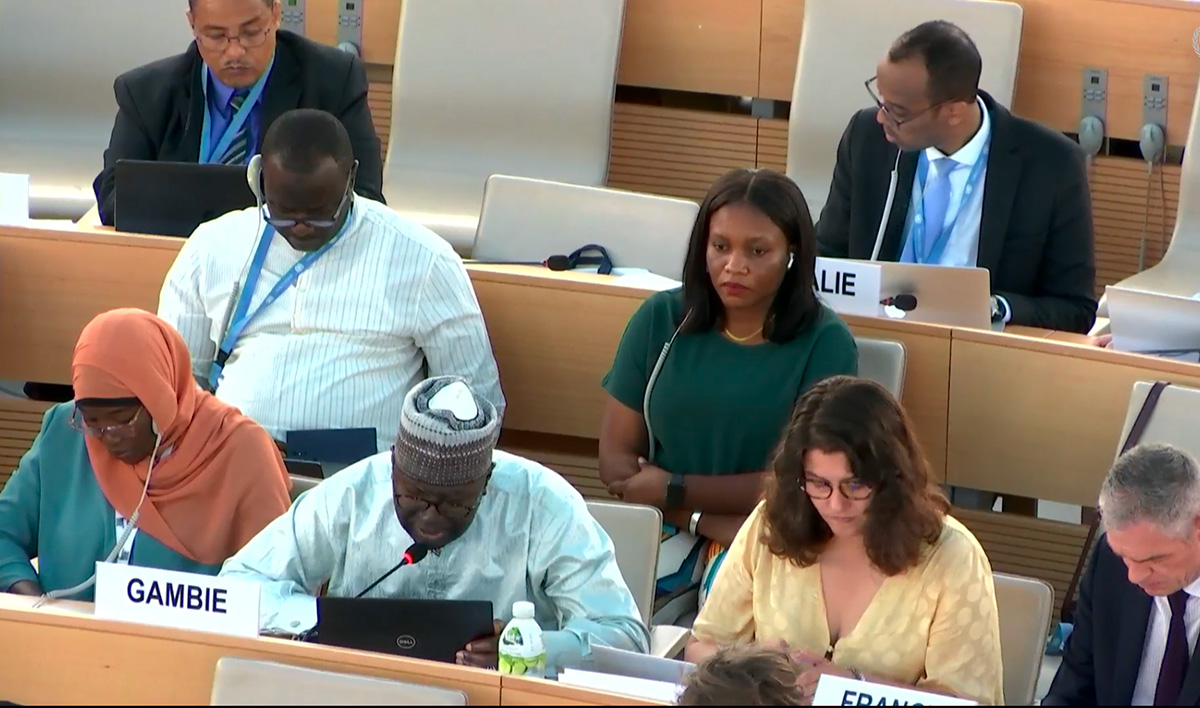Council members extended the EMLER mandate until 2027, recognising the value of the mechanism’s work over the past three years, as well as the need for experts to continue investigating States’ law enforcement practices and their impact on African and Afrodescendant people and communities.
‘We welcome the EMLER renewal and States’ decision to preserve this unique mechanism for global anti-racist accountability,’ reacted Lamar Bailey, Coalition Manager of the UN Antiracism Coalition (UNARC). ‘Through their country visits and reporting work, experts have given a platform to communities that have long endured the consequences of racist law enforcement policies. Their reports are a powerful and fact-based blueprint for much-needed transformation that governments everywhere should consult. More States should open their doors to them to facilitate this crucial work,’ Bailey emphasised.
Following The Gambia’s presentation of the resolution, South Africa, the United States, Costa Rica and China took the floor to urge the Council to adopt it by consensus.
‘We reiterate our view that racism has no place in our society,’ the South African delegation said, in support of the renewal, while the US representatives noted the value of Experts’ country visits, stressing that, though such visits ‘are not easy’, they are ‘vital tools for transparency, accountability and good governance’.
EMLER was established in response to the global outcry and antiracist movement that arose following the murder of George Floyd by US police officers, in June 2020. Council States set up the mechanism by consensus in July 2021, tasking it with promoting and protecting ‘the human rights and fundamental freedoms of Africans and of people of African descent against excessive use of force and other human rights violations by law enforcement’.
Since the start of their mandate, experts have led country visits to Sweden, the United States and Brazil, reporting to the Council at various sessions. Their latest country mission to Italy, carried out in 2024 is set to be discussed at the Council’s 57th session, next September.
EMLER mandate holders’ landmark visits to the US and Brazil served both to formally and thoroughly assess the daily impacts of systemic racism in policing by law enforcement services in both countries, to document deep-rooted causes and collect and highlight the testimonies of impacted communities.
Following their visits, experts notably called on US authorities to establish ‘national standards on the use of force’ and undertake ‘federal criminal investigations into cases of excessive use of force by law enforcement,’ while also urging the Brazilian government to ‘re-evaluate the current procedures of investigating law enforcement misconduct, dismantle systemic racial inequalities, and invest in addressing historical disparities at the root of these issues.’
Experts’ interventions at the Human Rights Council also provided persons directly affected by the use of excessive force or other discriminatory law enforcement practices to speak to States directly, with representatives of victims addressing the body in 2022 and 2023.
The full membership of the UN Antiracism Coalition (UNARC) calls on all States to fully cooperate with the Expert Mechanism over the course of its mandate, to consult and draw from their detailed reports and research, and to allow it full and unhindered access to support its work.




